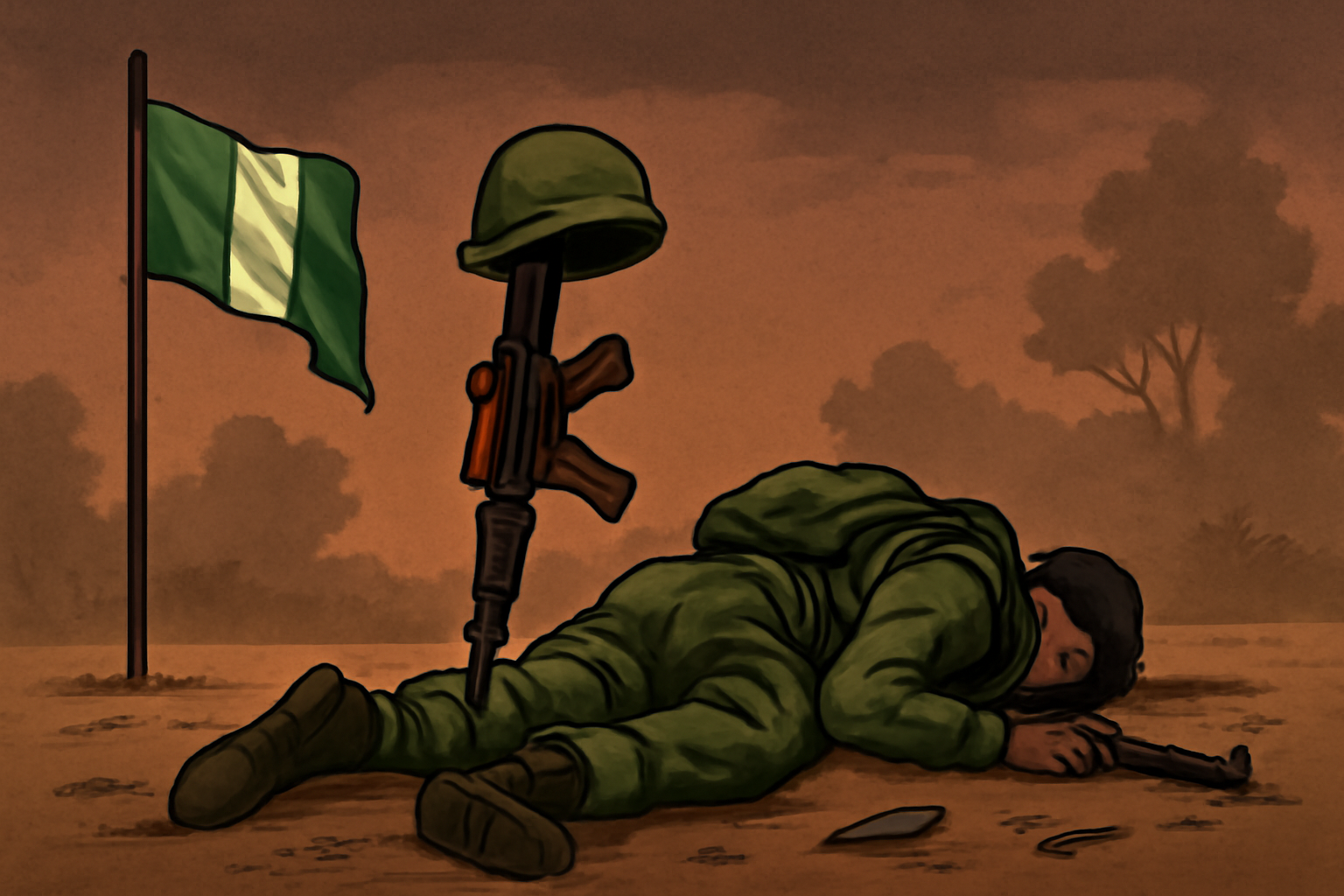Soldier Deaths in Nigeria: A Nation’s Response to Increasing Casualties
When news broke on Monday, June 24, 2025, that soldiers had once again been ambushed and killed in Niger State, the country barely blinked. There were no nationwide protests, no candlelight vigils, not even a brief national mourning for our fallen heroes—just headlines. Another day, another tragedy.
In Wushishi Local Government Area of Niger State, armed men laid a deadly trap for Nigerian troops responding to a distress call. By the time the dust settled, we were greeted with the fall of our gallant soldiers, though the exact number remains unclear. This silence is louder than any outcry. It raises the question: have we become numb?
Read Also:
- She Thought It Was Just a Visit: The Harsh Reality of Technology-Facilitated Gender-Based Violence in Nigeria
- Niger State Approves New Minimum Wage For State Workers
- Benue State’s Neglected Clinics Forcing Mothers to Risk Home Births for Survival
The wearing away of shock is not because these soldiers were less valuable; they are still our pride, nor because their lives meant less. It’s because this has happened too many times, in too many places, to too many uniforms and civilians alike. We have seen coffins draped in flags, we have watched widows sob behind sunglasses, we have read statements promising justice that never comes. It is only normal that we will scroll past the news now.
From Metele to Niger: The Repeated Killing of Soldiers and National Apathy
On March 14, 2024, when 17 soldiers, including a Lieutenant Colonel and a Major, were brutally murdered in Okuama, Delta State, the nation’s shock lasted only a few hours. A few hashtags trended. A few statements were issued. Then, silence. By the next day, Nigeria had moved on.
This was not the first time, and sadly, not the last. But the indifference, not the incident, is what now defines Nigeria’s response to soldier killings. Once symbols of national sacrifice, the deaths of Nigerian soldiers in battle, on peacekeeping, or internal security missions no longer stir the country’s conscience as they once did. Since the return to democratic rule in 1999, Nigeria has witnessed the deaths of thousands of its military personnel, not on foreign missions but on its own soil. From Borno to Benue, Zamfara to Delta, soldiers have been ambushed, bombed, and mutilated—often while responding to internal distress.
The Emotional Toll: How Soldier Deaths Have Lost Their Shock Value in Nigeria
The frequency of soldier deaths, especially in the northeast and middle belt, has numbed public sensitivity. Every few weeks, a new ambush. A new set of body bags. A new press release. The public has grown weary.
Many Nigerians, especially in conflict zones, view the military not just as protectors but also as aggressors. From Zaki Biam (2001) to Odi (1999), and more recently the Lekki Toll Gate shooting (2020), the military has been implicated in the killing of civilians. This has blurred public sympathy. In most democracies, the death of a soldier sparks national mourning. Flags fly at half-mast. Newspapers run tribute pages. But in Nigeria, soldier deaths are treated like statistics—no emotion, no ceremony, no closure.
Why Nigeria’s Numbness to Soldier Deaths Is a Symptom of Broader National Disillusionment
The killing of soldiers in Nigeria reflects more than just a security failure. It exposes a deeper, more dangerous wound—the loss of reverence for human life and national service. Soldiers, once hailed as symbols of courage and sacrifice, are now frequent casualties in a war with no clear enemy, no visible front, and no end in sight.
Read Also:
- She Thought It Was Just a Visit: The Harsh Reality of Technology-Facilitated Gender-Based Violence in Nigeria
- Niger State Approves New Minimum Wage For State Workers
- Benue State’s Neglected Clinics Forcing Mothers to Risk Home Births for Survival
Even the military itself seems weary. The Defence Headquarters confirmed the incident with a brief statement on Tuesday, calling it “regrettable” and promising to “bring the perpetrators to book.” It’s the same line we’ve heard in Zamfara, Kaduna, Benue, and Plateau. The same line we’ll hear again.
So when soldiers die, and no one mourns, it’s not because we don’t care; it’s because we’ve been here before, too many times. And that is perhaps the greatest tragedy of all.



